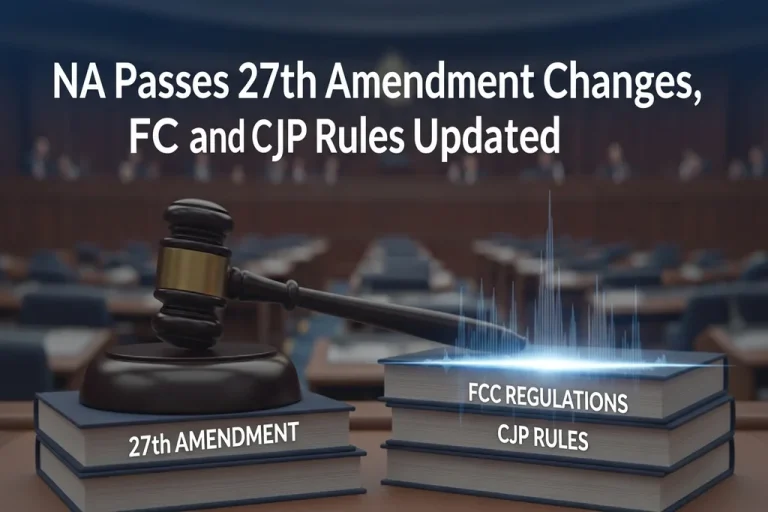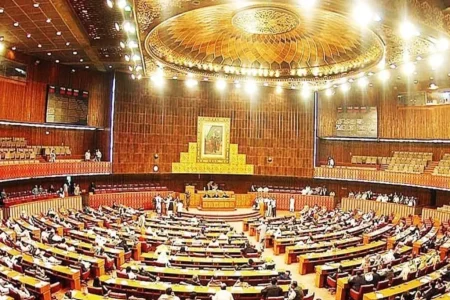On Wednesday, the National Assembly adopted the Constitution (Twenty-seventh Amendment) Bill, 2025, making several important changes to the one that had been adopted by the Senate. The new bill mostly gilds the Federal Constitutional Court (FCC) structure, titles and rank of supreme judges, and deletes oath provisions of the Senate draft.
Key Changes in the 27th Amendment Bill
- Federal Constitutional Court Included in High Treason Article
- Clause 2 amends Article 6(2A) of the Constitution, which deals with high treason.
The words “Federal Constitutional Court” were inserted to explicitly include the new court under Article 6, which the Senate draft had not done.
- Preventive Detention Clarification
- A new Clause 2A amends Article 10(4), which deals with preventive detention.
- It now includes a reference to the Supreme Court in the explanatory text.
3. Abolition of Oath-Provisions.
- The National Assembly removed some of the Senate version and this included Clause 4, 19, 51 and 55.
- These provisions had recommended amendments to the texts of oaths of office of other constitutional officeholders including the President, Auditor-General, Chief Election Commissioner and other government officials.
- As an illustration, instead of Chief Justice of Pakistan, Chief Justice of the Federal Constitutional Court would have appeared in some of the oaths in the Senate draft. Such changes were eventually eliminated.
4.Chief Justice of Pakistan (CJP) Clarified
- The previous CJP, Justice Yahya Afridi, is now guaranteed to remain in the position by clause 23.
- The provisions set by Clause 56 determine that the senior judge among the Chief Justice of the FCC and the Chief Justice of the Supreme Court will be given the title of the CJP.
Expert Opinion on 27th Amendment
Barrister Ali Tahir told The News that most of the NA amendments are minor and cosmetic, such as clarifying the FCC in Article 6. However, he pointed out that the changes related to the CJP position are significant, as they explicitly secure Justice Afridi’s continuation as the current chief justice.
Tahir explained:
“For now, Justice Afridi remains CJP. In future, the government can decide whether the senior-most judge of the FCC or Supreme Court becomes CJP. These amendments seem designed for this specific purpose.”
He also noted that person-specific constitutional changes like this are unusual in a modern, transparent system of governance.
In essence, the NA amendments:
- Refine the FCC framework.
- Clarify the hierarchy and titles of top judges.
- Remove oath-related changes proposed by the Senate.
- Define the CJP’s position and provide government discretion for future appointments.
The move ensures that the current chief justice, Yahya Afridi, remains in office, while also setting a precedent for how future CJPs may be selected based on seniority across the Supreme Court and the Federal Constitutional Court.
More Breakings Visit Our Website







